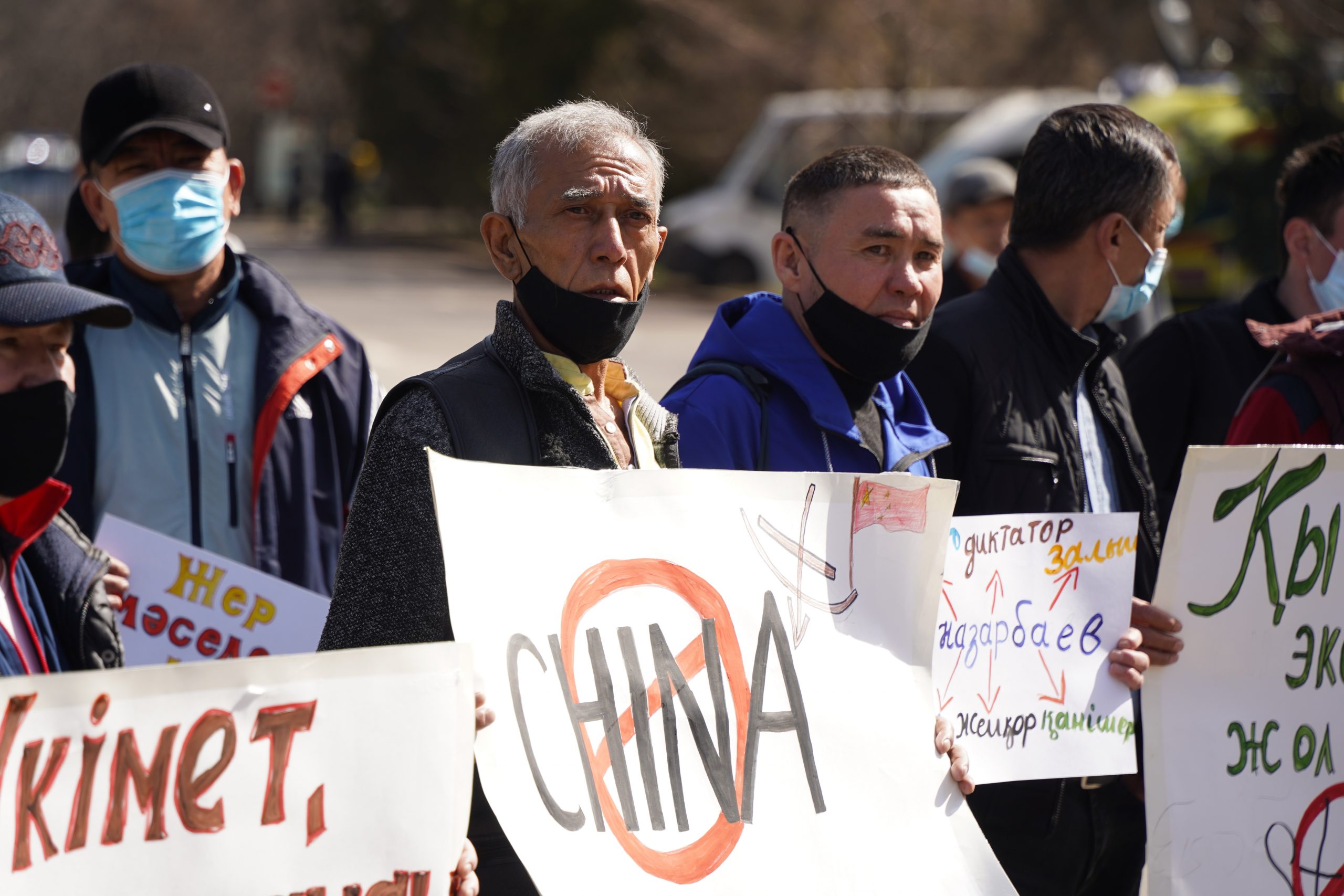Why Haven’t Kazakh Xinjiang Protests Gained Traction?
Relatives of ethnic Kazakhs detained in Chinese re-education camps in Xinjiang began daily protests demanding the release of their relatives and the to end the genocide over the border in China more than 180 days ago. Over the course of almost five months, protesters have gathered near the Chinese consulate in Almaty, and also in front of the Ministry of Foreign Affairs, Bank of China, the UN office, the U.S. Consulate, the Sinooil company’s office, and other Chinese enterprises in the Kazakhstan’s commercial capital.
Data from the Oxus Society’s Central Asia Protest Tracker indicates that the Kazakh government largely responded to the demonstrations with repression, subjecting protesters to continuous monitoring, fines, and arrests. Representatives of the local mayor’s office have occasionally met with the protesters to remind them of the “unlawfulness” of their actions. But no official meeting with the protesters has taken place. According to the Ministry of Foreign Affairs, the authorities’ lack of comment on the situation in Xinjiang is explained by non-interference in the domestic affairs of other states.
Meanwhile, the protests have not really gained broader traction. The plight of the Kazakhs detained in Xinjiang’s “re-education” camps did not lead to larger public support among ethnic Kazakhs in Kazakhstan until a very recent protest in the southwestern city of Zhanaozen on July 9th. The protesters in Zhanaozen addressed President Kassym-Jomart Tokayev and other officials, calling on the government to support the relatives of the ethnic Kazakh detainees protesting in Almaty. The protest by the residents of Zhanaozen could be an important turning point. It is the first time when ethnic Kazakhs, other than direct relatives of Xinjiang detainees, addressed the authorities in the form of a public protest demanding they pay attention to the plight of their ethnic kin.
The government’s lack of response to the plight of ethnic Kazakhs in China stands in stark contrast to their policies toward other communities of ethnic Kazakhs living abroad, the so-called Oralmans (changed to Kandastar in 2020), and those who fought in Syria and Iraq. The state has supported the return of both groups.
In the early years of independence, the Oralmans played a crucial role in raising the share of Kazakhs in the Kazakhstan, who at the time of independence were not in the majority. Berikbol Dukeyev has argued that the euphoria of the initial years of independence about the return of ethnic kinsmen gave way to a more negative portrayal of Oralmans as a cheap workforce. This shifted to the framing of Oralmans as a threat to the country’s domestic security in the aftermath of the unrest in Zhanaozen in 2011. State-approved narratives framed Oralmans as responsible for stirring up the unrest.
In the case of ethnic Kazakhs repatriated from the territories formerly controlled by the Islamic State the possible security risks are more tangible. Since 2019, Kazakhstan has repatriated approximately 700 of its citizens from Iraq and Syria within the framework of the operations Zhusan and Rusafa. Any potential discontent by the public concerning state assistance and objections to the repatriates as a potential security threat were overtaken by the narrative of the state’s mission to care for its citizens. Kazakhstan’s repeated statement, “we never abandon our women and children,” served to reinforce the shared identity of local people and their compatriots detained abroad. So, unlike the case when the state constructed threats from the Oralmans in the aftermath of the Zhanaozen riot, in case of the repatriates from Iraq and Syria the state’s responsibility for its citizens outweighed the more visible potential for radicalization.
Yet the state’s response to ethnic Kazakhs languishing in Xinjiang’s police state have been less compassionate. Space for Kazakhstan’s government to do anything about Xinjiang is limited due to the importance of economic relations with Beijing. As a result, the narrative of ethnic kinship will continue to be absent from among the legitimating factors informing state decisions. The government’s response also contradicts its stated policy of “the listening state,” introduced by Tokayev in 2019, which entails being “responsive to calls from the public, not only during election campaigns … but continuously.” The repressive response to the months of protest outside the Chinese consulate indicates the government only listens when it is beneficial domestically and safe internationally.
Broader domestic public support for the protesters appears as the only possible option for the protesters’ demands to be recognized. Therefore, the protest in Zhanaozen on July 9 is important in terms of communicating and amplifying the demands of the protesters to ethnic Kazakhs across the region. Currently, in the absence of state efforts to address the demands of the protesters and the suppression of the work done by Ata Zhurt Eriktileri human rights organization, which has contributed to raising awareness on the issue, public support seems to be the only channel left to get the message of the protesters heard. There is also a possibility of including the demands for the authorities to assist the relatives of the detainees in Xinjiang’s re-education camps in the agenda of the ongoing anti-Chinese protests. While currently the anti-Chinese protests largely address China’s economic expansion in the country, inclusion of the plight of ethnic Kazakhs in Xinjiang could become a new avenue to target the authorities and the Chinese government.

